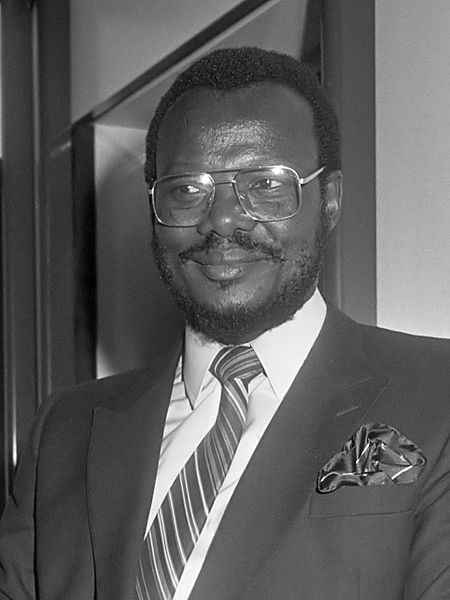Negotiations to end apartheid in South Africa
The apartheid system in South Africa was ended through a series of bilateral and multi-party negotiations between 1990 and 1993. The negotiations culminated in the passage of a new interim Constitution in 1993, a precursor to the Constitution of 1996; and in South Africa's first non-racial elections in 1994, won by the African National Congress (ANC) liberation movement.
Gatsha Buthelezi
South African President F. W. de Klerk in May 1990.
De Klerk and Mandela at the World Economic Forum in January 1992, shortly after CODESA I.
Mandela casting his vote on 27 April 1994.
Apartheid was a system of institutionalised racial segregation that existed in South Africa and South West Africa from 1948 to the early 1990s. Apartheid was characterised by an authoritarian political culture based on baasskap, which ensured that South Africa was dominated politically, socially, and economically by the nation's minority white population. In this minoritarian system, there was social stratification, where white citizens had the highest status, followed by Indians and Coloureds, then Black Africans. The economic legacy and social effects of apartheid continue to the present day, particularly inequality.
"Reserved for the sole use of members of the white race group" sign in English, Afrikaans, and Zulu at a beach in Durban, 1989
D. F. Malan, the first apartheid-era prime minister (1948–1954)
Hendrik Verwoerd, minister of native affairs (1950–1958) and prime minister (1958–1966), earned the nickname 'Architect of Apartheid' from his large role in creating legislation.
Cape Coloured children in Bonteheuwel








